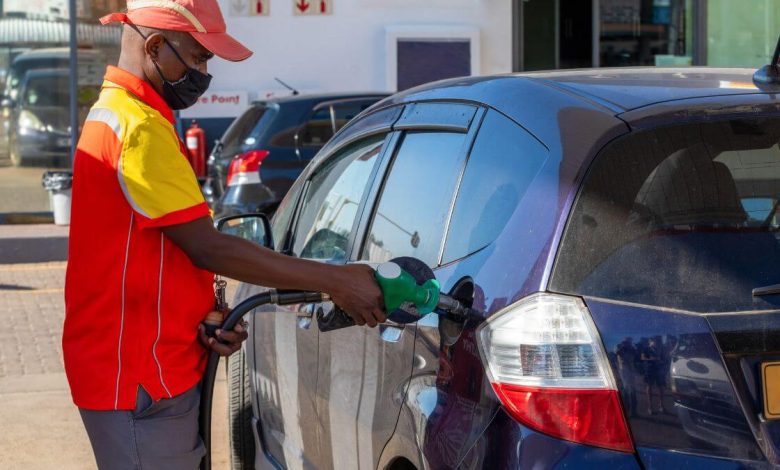The Official Petrol Price for September 2025

If you’ve been feeling the pinch at the pump, you’re not alone. For many South Africans—whether students budgeting for transport, parents planning household expenses, or public servants commuting daily—the cost of fuel has a big impact on your pocket. The good news is that September 2025 brings some relief. The Department of Petroleum and Mineral Resources has confirmed official petrol and diesel price adjustments that will ease costs slightly.
Petrol Price Adjustments for September 2025
The latest fuel price adjustments officially take effect on Wednesday, 3 September 2025. Both petrol and diesel are coming down in price, with diesel seeing the biggest cuts.
Inland Prices
- Petrol 93: R21.47 (down 4c from R21.51)
- Petrol 95: R21.55 (down 4c from R21.59)
- Diesel 0.05% (wholesale): R19.44 (down 56c)
- Diesel 0.005% (wholesale): R19.47 (down 57c)
- Illuminating Paraffin: R13.10 (down 37c)
- LPGAS per kg: R34.76 (down R1.32)
Coastal Prices
- Petrol 93: R20.68 (down 4c from R20.72)
- Petrol 95: R20.72 (down 4c from R20.76)
- Diesel 0.05% (wholesale): R18.61 (down 56c)
- Diesel 0.005% (wholesale): R18.71 (down 57c)
- Illuminating Paraffin: R12.09 (down 37c)
- LPGAS per kg: R31.60 (down R1.32)
- LPGAS (Saldanha WC): R33.79 (down R1.51)
Quick insight: Diesel and paraffin see the biggest reductions, which is especially helpful for households that rely on these fuels for heating or cooking.
Why Fuel Prices Are Dropping
Fuel prices in South Africa are influenced by global oil prices and the rand/dollar exchange rate. Here’s a breakdown of what drove the September 2025 changes:
1. Global Oil Prices
- The average Brent Crude oil price fell from $69.06 to $67.01 per barrel.
- This drop is due to OPEC+ increasing production and slower global economic growth.
- Lower crude oil prices reduce the base cost of petrol and diesel worldwide.
2. Rand Performance
- Despite tariffs on South African exports earlier this year, the rand remained relatively stable, trading between R17.50 and R17.80 per US dollar.
- A slight appreciation from R17.76 to R17.73 cushioned local fuel prices by about 2 cents per litre.
3. Improved Diesel Supply
- The global diesel shortage has normalized, reducing international diesel prices.
- This has a significant impact because diesel is widely used in transport, agriculture, and industry.
4. Slate Levy Balance
- The cumulative slate balance stands at R3.26 billion, keeping the slate levy at zero cents per litre.
- This ensures that consumers are not charged extra to cover under- or over-recoveries in fuel pricing.
5. Propane and Butane Price Drops
- Prices of propane and butane (components of LPGAS) have also decreased, resulting in significant LPGAS savings for households using gas for cooking or heating.
How the Price Cuts Affect South Africans
For Commuters
Even a small drop in petrol—just 4 cents per litre—adds up. A 50-litre tank saves R2 per fill-up. Diesel reductions are far more substantial, saving heavy transport users up to R40 per 70-litre tank.
For Households
- Families that rely on paraffin for cooking or heating benefit from a 37-cent per litre reduction.
- LPGAS savings of over R1 per kilogram can help stretch household budgets further.
For Businesses and Industries
- Transport-heavy industries, such as logistics, agriculture, and mining, benefit most from diesel price cuts.
- Lower fuel costs can reduce delivery costs, production costs, and even food prices over time.
Pro Tip: Consider filling LPGAS and paraffin before the next month’s review, as prices may fluctuate again.
Long-Term Context: Fuel Price Trends
- Fuel prices in South Africa are reviewed monthly. Cuts like these are welcome, but prices can rise again due to global crises, rand volatility, or supply disruptions.
- Petrol is usually more stable, but diesel and paraffin are more volatile because they are tied to industrial and commercial demand.
- Coastal areas pay slightly less than inland regions due to lower transport and distribution costs.
FAQs
1. Why is diesel always priced differently from petrol?
Diesel is used more in industry, transport, and farming. Its pricing is more sensitive to global supply, shortages, and seasonal demand.
2. What is the slate levy?
It is a mechanism to balance fuel price under- or over-recoveries. With a positive balance of R3.26 billion, the levy remains at zero.
3. Will these prices stay low for the rest of 2025?
Not necessarily. Prices are reviewed monthly and are influenced by global oil markets, the rand, and domestic economic conditions.
4. How can I reduce my fuel costs further?
- Plan trips efficiently to reduce unnecessary driving.
- Combine errands or use carpooling.
- Consider alternative transport, like public transport or cycling, for short trips.
Also check: September 2025 Petrol Price: Sharp Diesel Drop, Minimal Petrol Changes
September 2025 brings welcome relief at the pumps for South Africans. While petrol drops modestly, diesel, paraffin, and LPGAS see significant cuts that benefit households and businesses alike. Factors such as global oil supply, rand stability, and diesel supply improvements contributed to these price adjustments.



